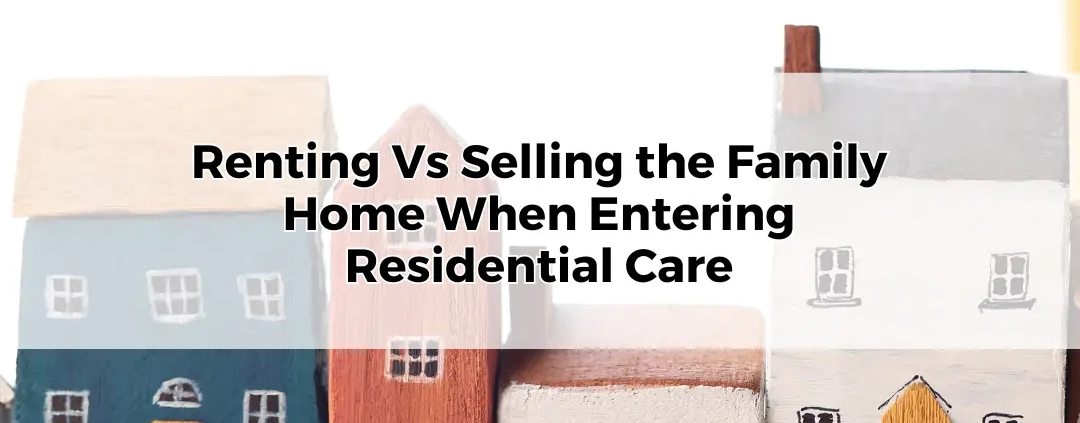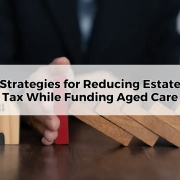Renting Vs Selling the Family Home When Entering Residential Care
Table of Contents
ToggleEntering residential care is a significant life transition that brings with it numerous financial decisions. Among the most pivotal is choosing whether to rent or sell the family home. Both options carry unique benefits and challenges, impacting financial stability and emotional well-being. This comprehensive guide delves into the financial considerations of renting versus selling the family home when entering residential care.
Understanding the Decision
Deciding whether to rent or sell the family home involves a myriad of factors. These include financial health, market conditions, and personal circumstances. It’s a decision that blends emotional and financial implications, requiring careful deliberation.
Renting the Family Home
Renting the family home can be an attractive option for many entering residential care. It allows the homeowner to retain ownership while generating income. However, it’s not without its complexities and potential pitfalls.
Financial Benefits of Renting
One of the primary advantages of renting out the family home is the steady stream of rental income it provides. This income can help cover the costs of residential care, easing the financial burden. Additionally, renting offers potential tax benefits, such as deductions for property-related expenses. The home also retains the capped value for calculation of assets for the means tested care fee and is exempt from assets test for age pension for two years after entry.
Challenges of Renting
Despite the financial benefits, renting also presents challenges. Property maintenance and management can be time-consuming and stressful. There’s also the risk of market fluctuations, which can affect rental income stability. Tenant issues, from late payments to property damage, add another layer of complexity. The income can also increase means tested care fees and reduce age pensions.
Selling the Family Home
Selling the family home is another viable option. It provides a lump sum of money that can be used to cover residential care expenses. However, like renting, selling comes with its own set of advantages and disadvantages.
Financial Benefits of Selling
The most significant financial benefit of selling the family home is immediate access to a large sum of money. This can be particularly useful for covering upfront aged care fees and other expenses. Selling can also simplify financial management, as there’s no need to deal with ongoing property maintenance or tenant issues.
Challenges of Selling
However, selling the family home can be emotionally challenging, especially if the home holds sentimental value. Market conditions and timing also play crucial roles in the financial outcome. Selling in a buyer’s market can result in a lower sale price, impacting the overall financial benefit. The means tested care fee usually increases after the sale of the home, however the proceeds provide other opportunities.
Tax Considerations
Both renting and selling the family home have tax implications. Selling may incur capital gains tax, especially if the home has significantly appreciated in value. On the other hand, rental income is taxable, although it may be offset by allowable deductions.
Impact on Government Benefits
Renting or selling the family home can affect eligibility for government benefits. The Age Pension and means testing for aged care fees are particularly relevant. The value of the family home and income generated from renting can influence the level of government support received.
Case Studies
To illustrate the financial implications, consider two scenarios. In the first, a homeowner with a strong rental market opts to rent out the family home, benefiting from steady rental income and potential tax advantages. In the second, a homeowner decides to sell, capitalising on a seller’s market to obtain a significant lump sum for residential care expenses.
Making the Decision
Ultimately, the decision to rent or sell the family home when entering residential care depends on individual financial situations and preferences. It’s advisable to seek professional advice to navigate this complex decision. Financial advisors can provide tailored recommendations based on market conditions, personal financial health, and long-term care needs.
Renting versus selling the family home is a pivotal decision with far-reaching financial implications. By carefully weighing the benefits and challenges of each option, homeowners can make informed choices that align with their financial goals and personal circumstances.









